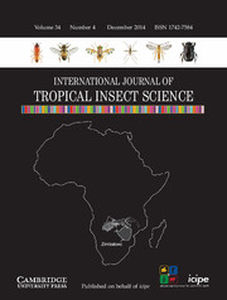No CrossRef data available.
Article contents
Chairman's keynote address
Published online by Cambridge University Press: 19 September 2011
Extract
Considering the theme of the study workshop, I would like to emphasize that both integrated control or pest management and host plant resistance date back to the earliest days of agriculture. By its very nature, agriculture is one of the most integrated activities of man. A successful farmer has many skills, which he or she (let us not forget that many farmers are women!) uses in an optimal combination to obtain food and income for the family. Integrated agriculture, control or management are therefore not a recent novelty of agricultural scientists, but rather a necessary response to scientific specialization and subsequent isolation, which has led to some degree of disintegration in modern agriculture. This disintegration is characterized by a tendency for simplification of the agricultural enterprise to the extreme of but one or a few crops, one or a few uniform cultivars and standard fertilizer and pesticide applications. It has been recognized that this development might result in an increased vulnerability and instability of this basic sector of human productivity, especially in parts of the world with a weak infrastructure, where local farmers are not able to respond in time to sudden adversities and are left with unexpected yield losses. Stable and ecologically balanced agricultural production systems are therefore especially essential to small farmers in the so-called Third World. They will benefit more from yield optimization rather than from yield maximization, because the latter is often attended by many disruptive forces.
- Type
- Research Article
- Information
- International Journal of Tropical Insect Science , Volume 6 , Special Issue 3: Host Plant Resistance and its Significance in Pest Management , June 1985 , pp. 235 - 236
- Copyright
- Copyright © ICIPE 1985


